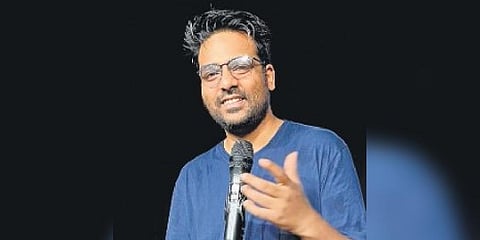

HYDERABAD: American stand-up comedian Dave Chapelle says, “If this is what being canceled is, I love it.” Only in the late 2020s has the phrase “cancel culture” been labelled as such. While it has a name now, this boycotting phenomenon tends to be a long-lasting occurrence that mostly targets popular figures.
The public figure faces career setbacks, popularity declines, and financial risks when the audience communicates their displeasure with what they heard them say or do. Not just in the West, but also in India, it has been common.
From the actor Rhea Chakraborty to the movie 'The Kerala Story', many comedians, including Kunal Kamra, Munawar Faruqui, and Tanmay Bhat are examples of such occurrences. As cancel culture’s mighty grip tightens, the virtual world of social media and the stand-up industry find themselves tip-toeing between the blurring lines of irresponsibility and freedom of expression. Social media platforms have become grounds for ostracisation of individuals.
“We have a voice that can impact the world and using it intricately makes a lot of sense, there are two sides to this,” says Abhignya Vuthaluru, actor and content creator. She further mentions how the cancel culture has been more prominent in the West than here. “We are inclined towards the idea, as we are open to Westernisation in many ways, I see that the cancel culture hit us too. Yes, sometimes artistic freedom is hampered by this but it is our responsibility as creators to be responsible for many things.
On the flip side, cancel culture doesn’t give a chance to artists or creators to be in the gray area, after-all they are people and they make mistakes. I could take the example of a stand-up comedy in India. This one comic had something to say about Indian culture and it was micro-analysed to a level where his shows were canceled out. It’s a little unfair. I have seen that show and I believe he was being very responsible. Even when I post about equality and gender it comes across as objectionable, when everybody is entitled to put their opinion out there, a lot of people react in different ways.
But we need to be mindful and responsible. All in all, I’m not a huge fan of cancel culture, instead focus on correcting someone and calling out people in general and not only artists. And for artists, a lot of inspiration comes from people in and around. So while I believe it is only human to err, be open to criticism. Being mindful helps, it’s a good balance,” explains Abhignya.
While Abhignya talks about the flip side, Sandesh Johnny, a Hyderabad-based stand-up comic, opines a different view, “Honestly, cancel culture has only helped a comedian more than it has cancelled. The top two names that come to my mind when it comes to cancel culture are Munawar Faruqui and Tanmay Bhat. If you see, they are actually doing pretty well. I acknowledge that they must have faced trauma and anxiety, and a lot of emotional pain while going through that when all these fires were happening, but look at them doing well now. The relationship here exists between a comedian and an audience, not a comedian and a group of people that are trying to ban him. So as far as I think, cancel culture will not affect a comedian, in India at least.’’